Soyuz
Latest
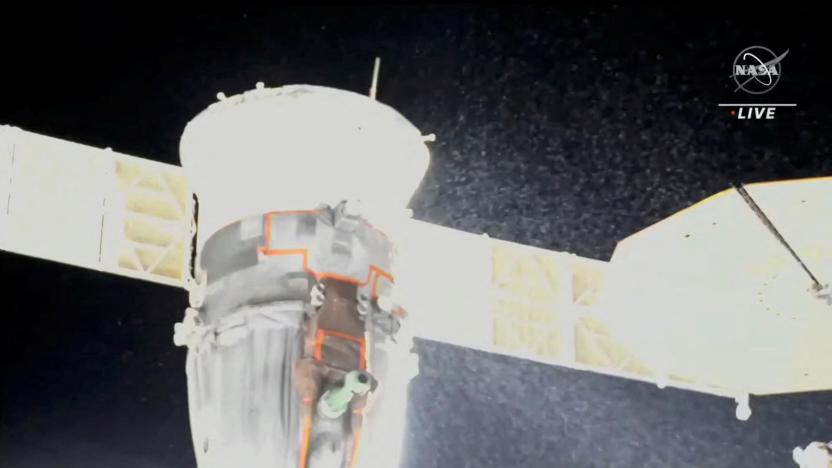
Russia will send a 'rescue' spacecraft to the ISS following leak
Russia is rushing a Soyuz capsule to the ISS to replace a damaged one.
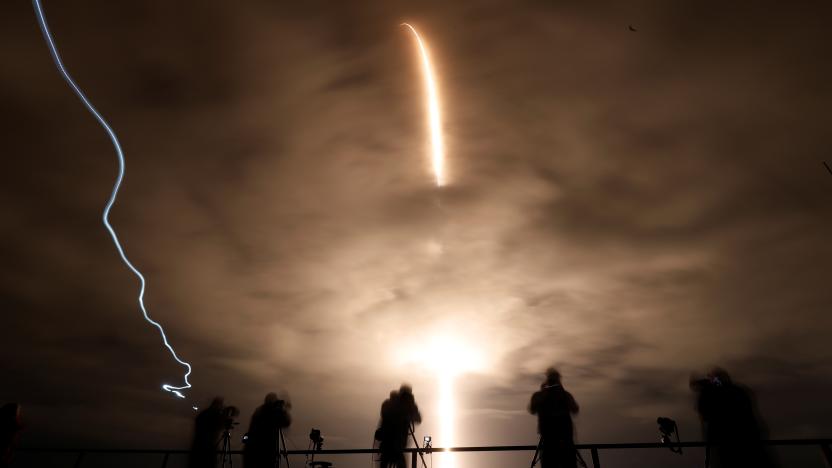
SpaceX will launch OneWeb’s satellites following Russia's ultimatum
OneWeb will turn to a competitor to ferry its remaining first-generation internet satellites to space.
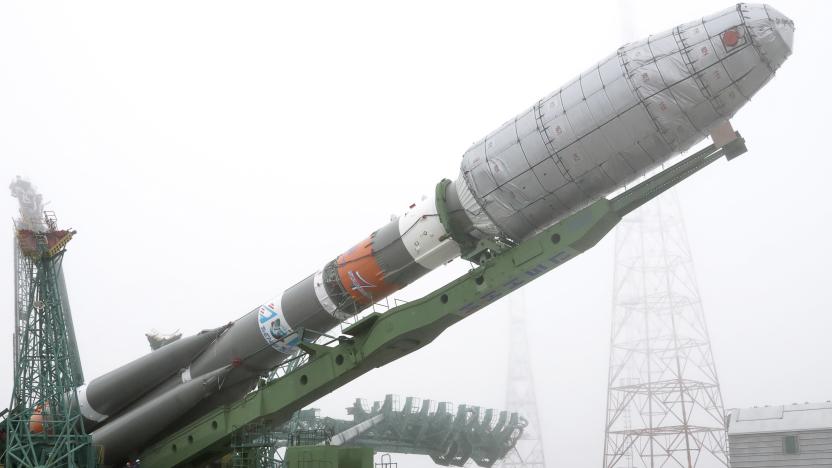
Russia refuses to launch OneWeb internet satellites following UK sanctions
Roscosmos wants assurances about non-military use and the UK government to divest its stake.
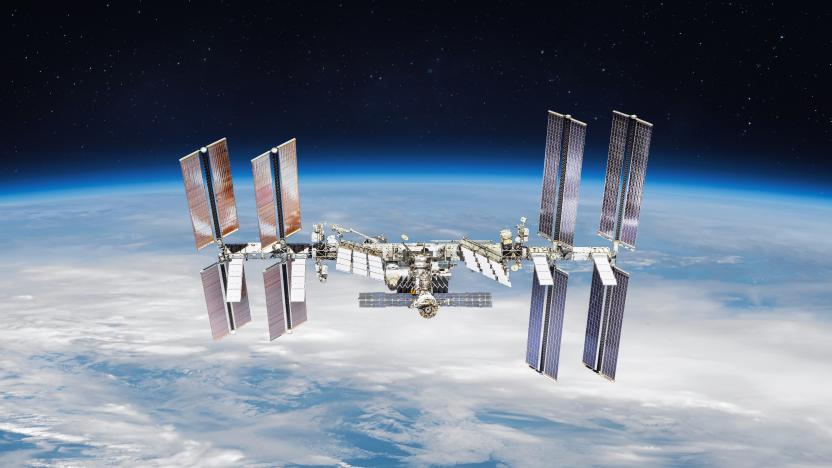
Surprise Soyuz thruster firing tilted and turned the ISS
The ISS turned by 57 degrees after a docked Soyuz spacecraft continued to fire its thrusters during testing when it was supposed to end.
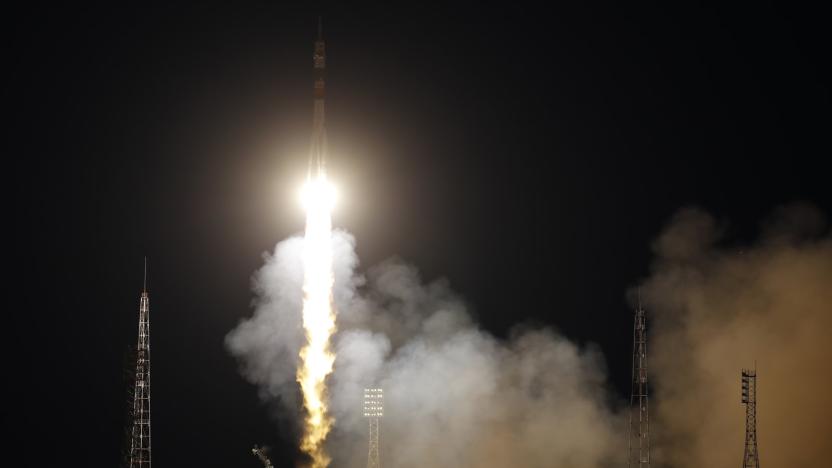
Russia is making more Soyuz spacecraft to help NASA's ISS missions
While the US wants to reduce its dependence on Russian rockets, Russia itself is expecting to help for a while yet. Roscosmos chief Dmitry Rogozin recently ordered the construction of two more Soyuz MS spacecraft, one of which will help NASA deliver astronauts to the International Space Station. The decision follows a letter from NASA director Jim Bridenstine warning of a delay in starting American commercial spacecraft flights. The US may need extra seats in 2020 and 2021, Rogozin said, and this extra spacecraft will help in a pinch.

Watch astronauts reach space on Apollo 11's 50th anniversary
Earth is about to mark Apollo 11's 50th anniversary in one of the most fitting ways possible: sending people to space on the same day. NASA's Andrew Morgan (shown at left), Roscosmos' Alexander Skvortsov and the ESA's Luca Parmitano are launching on a trip to the International Space Station at 12:28PM ET today (July 20th), with NASA's live coverage starting at 11:30AM Eastern. The rendezvous with the ISS is slated for around 6:50PM ET. The crew will be joining NASA's current ISS residents Nick Hague and soon-to-be record setter Christina Koch, as well as Russia's Alexey Ovchinin.

Astronauts aboard Soyuz spacecraft arrive safely at the ISS
The three crew members aboard the Soyuz MS-11 spacecraft have safely arrived at the International Space Station after launching from Kazakhstan earlier today. Anne McClain of NASA, David Saint-Jacques of the Canadian Space Agency and Oleg Kononenko of Roscosmos are all getting settled on board the ISS following a six-hour journey. This was the first crewed launch of a Soyuz rocket since an equipment malfunction caused astronaut Nick Hague and cosmonaut Alexey Ovchinin to abort their launch and engage an emergency landing in October.
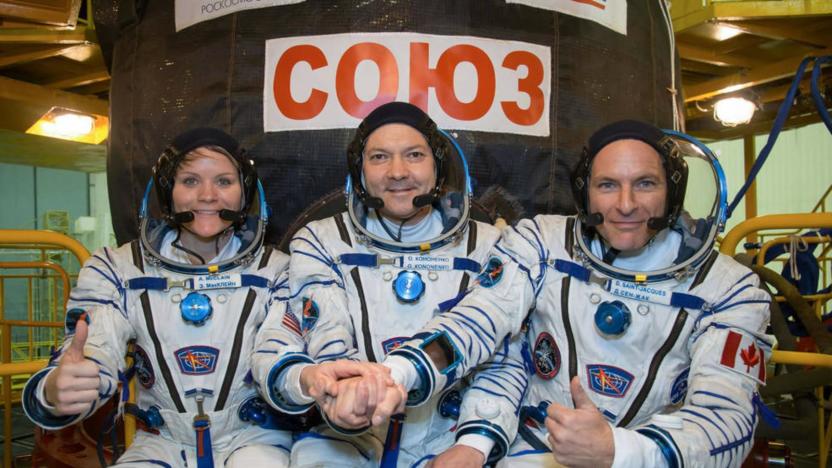
Soyuz to embark on first crewed mission to ISS since its failure
Three astronauts are blasting off to the International Space Station this morning aboard the Soyuz MS-11 -- the first time people will travel on the rocket since it fell apart on October 11 with NASA's Nick Hague and cosmonaut Alexey Ovchinin aboard. Fortunately, the two weren't hurt when they were forced to exit the malfunctioning rocket just two-and-a-half minutes after takeoff. Until then, the craft had a 100 percent success rate, so all eyes will be on this launch.

After Math: The best kind of falling star
Gavin McInnes and his gang of Proud Boys, newly minted stars of the Alt-Right, took their first steps back toward irrelevancy this week when they got themselves banned from Facebook. At the same time, we've had to say goodbye to a pair of space-based telescopes (Kepler and Dawn), as they reached the end of their operational lifespans; Roscosmos blamed the recent Soyuz launch failure on a bent sensor pin and Apple announced that it would no longer report the sales numbers for the stars of its product lineup -- iPhones, iPads and Macs -- after it was reported that smartphone sales slumped six percent globally this year.

Soyuz rocket failure blamed on a bent sensor pin
Russia has released the findings from its investigation into the Soyuz rocket failure on October 11th, and the cause may be relatively ignominious. The investigators determined that a bent separation contact sensor pin, damaged during the assembly of the strap-on boosters, prevented a nozzle lid from opening and separating one of the boosters. That led to it hitting the core stage and triggering the decompression that sent the rocket out of control, according to officials. You can see the incident yourself in the video below at the 1:24 mark.

Russians say ISS air leak could be a result of sabotage
Last Thursday, NASA informed the public that there was an air pressure leak aboard the International Space Station. It was extremely small and posed no immediate danger to astronauts. Flight controllers worked with the astronauts to determine that there was what appeared to be a drill hole aboard an attached Soyuz capsule that the astronauts attempted to patch. Now, the Russians are investigating sabotage as a possibility.

Russia may send a robot 'crew' to space in 2019
Leveraging robotics to undertake dangerous missions has obvious benefits for mankind, and space travel is no exception. In 2011, NASA sent its dexterous assistant 'Robonaut 2' on a trip to the International Space Station (ISS) with the objective of working alongside presiding astronauts. Now a "source in the rocket and space industry" tells RIA Novosti that a Russian android duo could be following suit as early as next year.
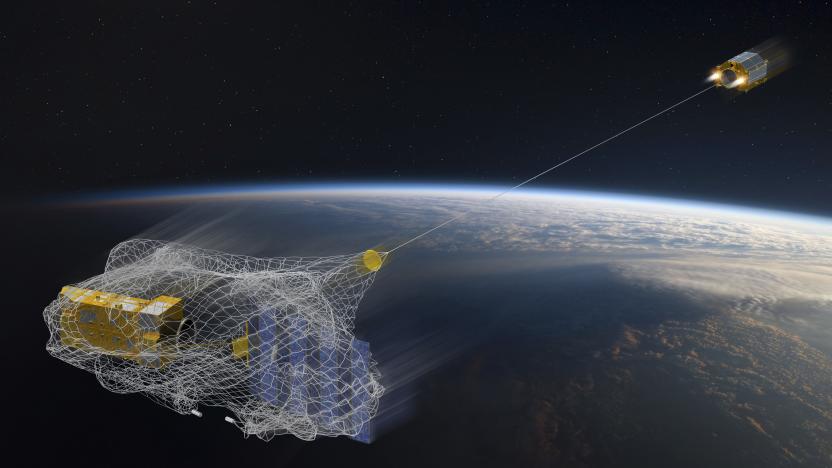
The robots that will sweep Earth's skies
After six years in space, China's first orbital station, the Tiangong-1 (aka the "Heavenly Palace") has finally outlived its operational limits and begun its descent to Earth. It's expected to re-enter the atmosphere in a few months, whereupon a majority of the 9.3-ton station should burn up before reaching the surface. This is how defunct satellites are supposed to be disposed of. Unfortunately, until very recently, that hasn't often been the case.

Russia and the US will work together to build a moon base
There have been rumors that the US and Russia would be teaming up to build a lunar base. Sources within the country told Popular Mechanics that the head of their space organization, Roscosmos, was set to announce a partnership agreement with NASA this week. Now, Roscosmos and NASA have both released statements saying stating the two countries' shared "common vision for human exploration." They go on to say that Russia and the US will cooperate on a Moon program, specifically mentioning the Deep Space Gateway by name. That's the base NASA plans to build in lunar orbit starting in the 2020s (the statement sets a mid-2020s goal for beginning the project). The release also mentions that other international partners are considering signing onto the lunar base.

ICYMI: Lasers of the future will create an atmospheric lens
try{document.getElementById("aol-cms-player-1").style.display="none";}catch(e){}Today on In Case You Missed It: A new company called BAE Systems is touting its Laser Developed Atmospheric Lens tech, which aims to use particles in the atmosphere to make a big magnifying glass. They admit we are many years from actual application of the idea, but that doesn't make the video any less cool. Meanwhile NASA is booking rides on Russia's space transport vehicle, the Soyuz, through 2019, since SpaceX and Boeing are both behind on their plans for a vehicle to get American astronauts to the International Space Agency. The America's Funniest Home Videos compilation is here. As always, please share any interesting tech or science videos you find by using the #ICYMI hashtag on Twitter for @mskerryd.

NASA may rely on Russian shuttles for ISS missions until 2019
NASA is considering buying seats aboard the Soyuz spacecraft for 2019, according to a solicitation it filed recently. The agency originally wanted to end its dependence on Russia's Soyuz spacecraft this year, but SpaceX and Boeing aren't quite ready to take astronauts to the ISS. Boeing had to push back its first manned flight to the space station to December 2018 or later due to a design flaw with the Starliner. SpaceX also had to delay its plans after a Falcon 9 exploded on the launch pad last year. While both companies could very well be able to stick to their new timelines, NASA could be eyeing the purchase as an insurance in case of additional delays. Besides, seats on the Soyuz keep getting more expensive every year.

Tim Peake's space capsule will live on at London's Science Museum
Tim Peake's voyage to the International Space Station (ISS) made plenty of headlines over the past year for good reason: he was the first British astronaut to explore space in over 20 years. While floating 220 miles above the earth, Peake took some time out to help the BBC make its first broadcast into space and completed a marathon, helping inspire millions of young children across the UK (and the world). In an attempt to build on that momentum, the Science Museum Group announced today that it has bought the spacecraft that made it all possible.

Watch crew leave the International Space Station at 4:45PM Eastern
It's always a momentous (if melancholic) moment when astronauts finish their stints aboard the International Space Station, and NASA is determined to capture every last minute of the occasion this time around. It's livestreaming the departure of astronauts Kate Rubins, Anatoly Ivanishin and Takuya Onishi as they end 115 days in orbit. Things get started in earnest today (October 29th) at 4:45PM Eastern, when the crew says its goodbye and enters the Soyuz spacecraft. The undocking should begin at 8:37PM, and the deorbit burn should start at 11:06PM. If all goes according to plan, the team will touch down on Earth at 11:59PM.

Vladimir Putin dissolved Roscosmos, Russia's federal space agency
With the flourish of a pen earlier today, Russian president Vladimir Putin officially put an end to Roscosmos, the country's federal space agency. That decree capped off over a year's worth of organizational despair as the agency saw its ten-year budget cut (again), the loss of a handful of spacecraft and the misuse of over 92 billion rubles (or $1.8 billion) in part thanks to a pervasive culture of corruption. Don't worry about the country's spacebound ambitions, though — Roscosmos will be reborn as a state-run corporation on January 1.

Russia's next space station trip will take days, not hours
It's not a great time to be a Russian cosmonaut. Thanks to the International Space Station making a maneuver to avoid space junk, the next Soyuz spacecraft's flight (due September 2nd) will take two days to reach the station instead of the relatively brisk six hours of recent trips. That's more than a little unpleasant if you're stuck in a cramped capsule, and negates a lot of the planning work that has saved so much time from 2013 onward. There's no indication as to when (or if) launches will speed up, so crews may have little choice but to tough it out in the near future. [Image credit: NASA, Flickr]











